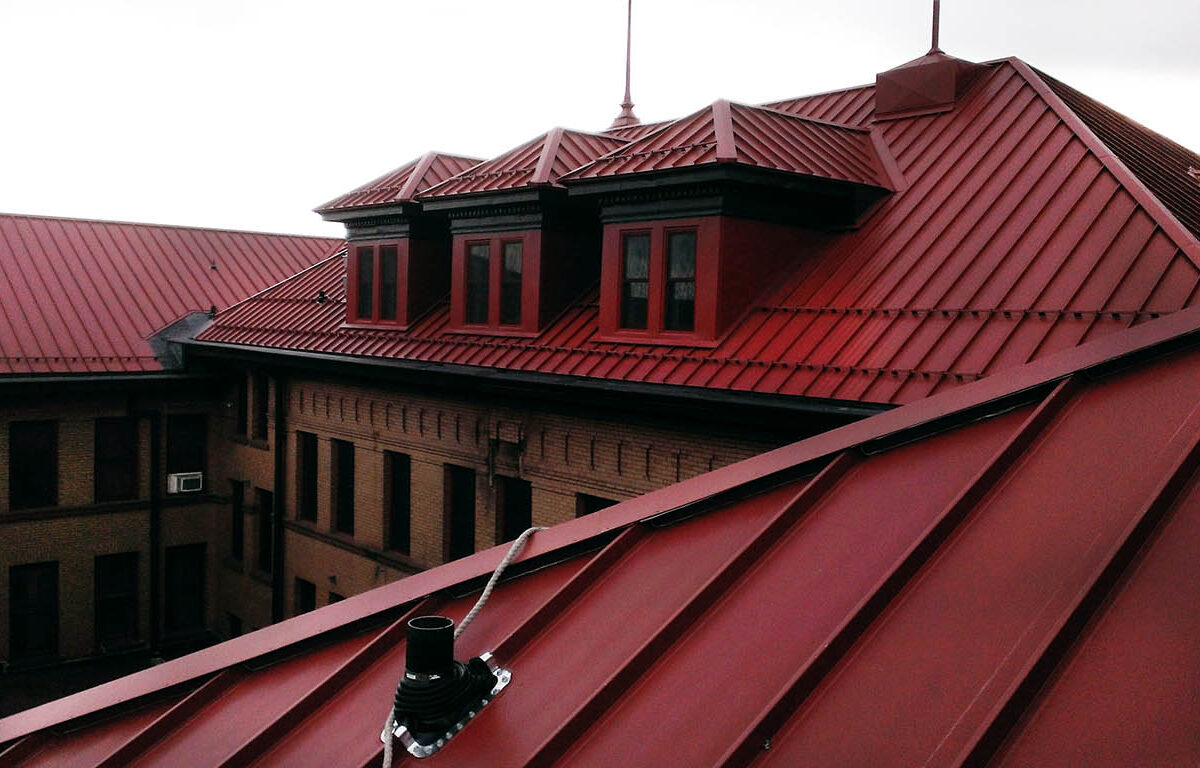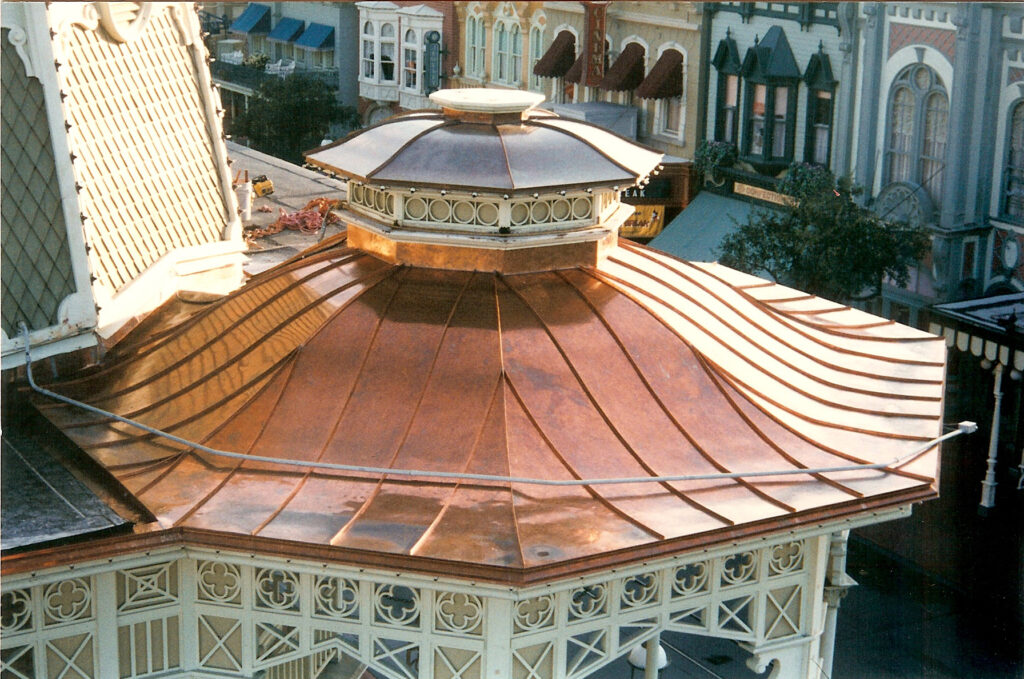
What Is Architectural Sheet Metal And What It Is Used For?
Architectural sheet metal is a specialized type of metal used in the construction of buildings. It is a thin, rigid metal sheet that is often used to cover floors, ceilings, and other surfaces. It is also used to create decorative features on buildings, such as cornices and finials. Sheet metal is cut into custom shapes using a variety of welding and cutting techniques, then welded together to create finished products. This article will discover What Is Architectural Sheet Metal and the use of architectural sheet metal. This metal is often used in high-end buildings and structures due to its unique physical properties and durability.
The Types of Metal for Buildings
Knowing what is architectural sheet metal, there are a few types of metal that are commonly used in architectural sheet metal. The most common is copper, which is what most roofs and walls are made out of. Copper has good thermal conductivity, making it a good choice for areas that will be heated or cooled frequently. It is also resistant to corrosion, so it can last for a long time.
Another type of metal that is often used in architectural sheet metal is aluminum. Aluminum is lightweight, which makes it a good choice for buildings that need to be portable, like stadiums or other outdoor structures. It also has good strength properties, meaning it can withstand a lot of stress. The third type of metal that is often used in architectural sheet metal is steel. Steel is strong and durable, meaning it can hold up well to the elements and physical abuse.
Where Metal Is Mostly Used In Construction?
Sheet metal is a very common material used in architecture. It can be found in the form of roofing, siding, and trim. Sheet metal is durable and can last for many years without needing to be replaced. Sheet metal is often used to cover up defects or imperfections in other building materials.
By using sheet metal, architects can create a more uniform appearance on a building. This makes the building look more professional and polished. The popular use for architectural sheet metal is in car manufacturing. This type of metal is often used in the bodywork and chassis of vehicles, as it’s lightweight yet tough enough to withstand collisions.
Metal also has several other applications in construction, including signs and statues. Sheet metal is also often chosen because it is lightweight and easy to move around. This makes it ideal for use in areas that may be difficult to access or where there are lots of stairs or other obstructions.
Why is Architectural Metal Used In Construction?
Architectural metal is used in construction as a result of its unique properties and capabilities. These properties make it an ideal material for a variety of applications, including roofs, siding, and window frames. By understanding what is architectural sheet metal, you may want to know why is it used in construction.
One reason architectural metal is so versatile is its ability to withstand weather conditions. The material can typically stand up to harsh sunlight and weather conditions such as snow, rain, and wind. This makes it an ideal choice for roofing, siding, and other exterior applications.
Another benefit of Architectural Metal is its strength. The material can support large loads without breaking or corroding. This makes it an ideal choice for window frames and other structural components. In addition to its strength and durability, architectural metal is also sheer. This makes it easy to transport and install relative to other materials options.
What Metals Are Used For Architectural Sheet Metal Roofing?
Architectural sheet metal roofing is made from a variety of metals that are used for their strength, durability, and weather resistance. Sheet metal roofing is an excellent option for areas that experience heavy precipitation or snowfall, as it can handle the weight without failure. Some of the most common metals used for architectural sheet metal roofing are copper, aluminum, zinc, and stainless steel.
The different properties of these metals make them ideal for specific applications in sheet metal roofing. Copper is often chosen for its high strength and resistance to corrosion, while aluminum is commonly used because of its light weight and ability to resist heat and expansion. Zinc is also popular in architectural sheet metal roofing because of its low cost and resistance to rust and tarnish.

How to Become a Sheet Metal Contractor?
Becoming a sheet metal contractor can be a rewarding and lucrative career choice. There are many factors that you need to consider when pursuing this career, such as training, experience, and licensing requirements. Here are some tips on how to become a successful sheet metal contractor:
Pursue formal training and education in the field: This will give you the skills and knowledge required to carry out Sheet Metal Contractor tasks successfully. Courses that offer certification or licensure can be very helpful in boosting your resume and solidifying your credentials as a qualified professional.
Develop a strong work ethic: A commitment to excellence is essential if you want to be successful as a Sheet Metal Contractor. You must be willing to put in the extra effort to make your business thrive.
What Makes Architectural Sheet Metal Companies Different From Other Metal Fabricators?
The architectural sheet metal industry is a specialized and demanding field. The fabrication of metal architectural components can be extremely time-consuming and requires a high level of precision, accuracy, and skill. By understanding what is architectural sheet metal, you should know what makes them different from other metal fabricators. Here are some reasons.
- Architectural sheet metal companies offer a unique perspective on metal fabrication. They are typically more specialized in one area of the metalworking process, such as fabricating aluminum or steel sheets. This specialization allows architectural sheet metal companies to produce high-quality products at a lower cost than other metal fabricators.
- Another advantage of architectural sheet metal companies like American Sheet Metal is their expertise in working with specific types of metals. Companies that specialize in aluminum fabrication, for example, are better equipped to work with this lightweight material than companies that specialize in steel fabrication.
- The final reason why architectural sheet metal companies are different from other metal fabricators is their focus on design and aesthetics. Many of these companies have a strong emphasis on customer satisfaction, which results in products that look good and perform well.
